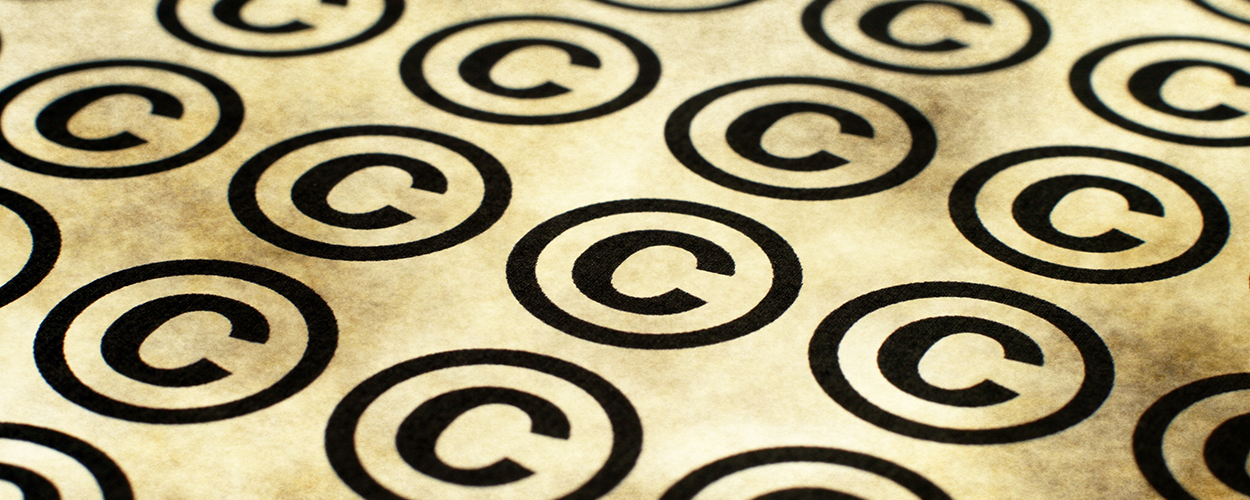This website uses cookies so that we can provide you with the best user experience possible. Cookie information is stored in your browser and performs functions such as recognising you when you return to our website and helping our team to understand which sections of the website you find most interesting and useful.
Business News Digital Labels & Publishers Top Stories
Everyone comments on the US Copyright Office’s safe harbour report
By Chris Cooke | Published on Friday 22 May 2020

A socially-distanced orderly rabble of music industry trade groups gathered yesterday to respond to the US Copyright Office’s long-awaited report on the copyright safe harbour. This is what everyone said:
Mitch Glazier, CEO of the Recording Industry Association Of America: “Technology companies have shown they can solve some of the world’s most difficult technical problems – legal, financial, or otherwise. Improved anti-piracy work is in everyone’s best interest and the RIAA and our members stand ready to work with the platforms to get it done. We expect that Congress will closely review both the Copyright Office report and the steps taken by the platforms to fix the issues it has identified. The RIAA stands ready to support that process”.
Richard Burgess, CEO of the American Association Of Independent Music: “Recorded music industry revenues are still artificially suppressed, 20 years after the digital disruption. There is no lack of demand. Music listeners and listening are at an all-time high while revenues hover around 50% of what they were in the year 2000 (by adjusted dollars). Common sense fixes would narrow the gap, especially for independent artists and labels that lack the means to adequately protect their intellectual property when they are up against internet platform behemoths that are literally the richest companies on earth. A2IM is eager to engage in the important steps that should follow the release of this report”.
Irving Azoff, board member of the Music Artists Coalition: “The Copyright Office’s report validates what every working musician knows: the music copyright system is broken and must be fixed. The interpretation of the DMCA by big tech strips music creators of the rights granted to them by the Constitution. Technology companies fight vigorously to protect their intellectual property but trample on copyright. The time has come for big tech to pay attention, read this report, and work with us to fix the system, rather than hiding behind an antiquated law that harms our working musicians, songwriters, producers and recording artists”.
David Israelite, CEO of the National Music Publishers Association: “The changes necessary to prevent large-scale, systematic piracy are simple and achievable. This report outlines where the system is failing, and we hope that it underscores the need for tech companies to do more about the theft they know they are enabling. Music has value, and as long as it is wilfully not protected, songwriters, artists and musicians will suffer. This study supports the fact that social media platforms and search engines can and should do better”.
Michelle Lewis, Executive Director of the Songwriters Of North America: “The DMCA takedown system is the opposite of the way copyright is supposed to work, which is to get permission first. It is particularly unfair to songwriters and other individual creators, who lack the resources to track infringements in the ocean of the internet. Even when a takedown notice is sent, the material can pop right back up again on the very same platform. If we have to live with the DMCA system, it needs to be takedown, stay down. If there are better tools available to filter out re-postings, all creators should have the opportunity to use those tools, not just bigger players. Songwriters should be spending their time writing songs, not sending takedown notices”.
Michael Huppe, CEO of record industry collecting society SoundExchange: “It comes as no surprise to music creators that the 22 year old DMCA provisions meant to protect their work online have not aged well. The realities of today’s digital economy bear little resemblance to the technology anticipated when the DMCA became law. As this study shows, today’s creators are forced to spend immense – and sometimes impossible – efforts trying to protect their rights. This is fixable, but it requires the cooperation of big tech companies that allow their platforms to trample the rights of creators while hiding behind the DMCA. The system can work better, and we all deserve a higher standard”.
The Artist Rights Alliance: “When you cut through the bureaucratic caution and legalese, this report describes a simple, brutal truth: The tech monopolies are failing artists, songwriters, and music fans. And they couldn’t care less … The bottom line: tech platforms hold the keys to their own networks and could massively reduce the amount of online piracy and the crushing burden it imposes on working songwriters and musicians today if they wanted to. But they don’t … if we could get some common decency from the Silicon Valley giants, we could work out solutions to many of these issues without changes to the law. The Judiciary Committees asked for this report and must now push tech companies to find these solutions and insist that independent creators have a seat at the table. If that fails, Congress must act”.
John Phelan, Director General of the International Confederation Of Music Publishers: “Today’s report is significant in our worldwide fight for the full and fair valuation of music online. Its core conclusion is: ‘safe harbour’ laws for online services are ‘unbalanced and out of sync with Congress’s original intent’. We in the music industry agree. ‘Safe harbours’ have been the subject of notorious misuse by ‘big tech’ platforms for almost two decades, around the world. Such deliberate avoidance of full and fair licences denies everybody in music fair value of their work. The EU made historic strides towards a solution in Europe with last year’s ‘article seventeen’ law. This report crystallises the need for change in the US”.





